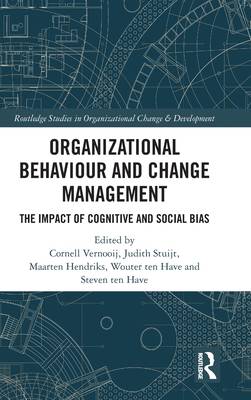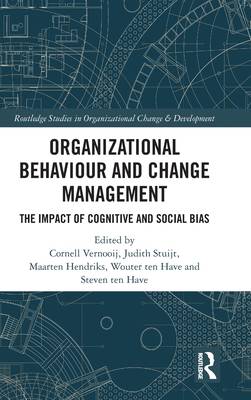
- Afhalen na 1 uur in een winkel met voorraad
- Gratis thuislevering in België vanaf € 30
- Ruim aanbod met 7 miljoen producten
- Afhalen na 1 uur in een winkel met voorraad
- Gratis thuislevering in België vanaf € 30
- Ruim aanbod met 7 miljoen producten
Zoeken
Organizational Behaviour and Change Management
The Impact of Cognitive and Social Bias
Cornell Vernooij, Judith Stuijt, Maarten Hendriks, Wouter Ten Have, Steven Ten Have
€ 244,45
+ 488 punten
Omschrijving
Humans are social animals, and change is a social process. To understand this social process and explain the thoughts, feelings, and behaviours of individuals, knowledge of how the presence of others influences people is crucial. In this regard, bias is a concept with a lot of potential. Because cognitive and social biases influence human thinking, feelings, and behaviour, these provide insights and knowledge that are helpful, if not essential, for the field of organizational behaviour and change management. The preceding statements may seem obvious and self-evident, but practice as well as science show that they are neither. Organizational Behaviour and Change Management: The Impact of Cognitive and Social Bias aims at unleashing the potential of cognitive and social biases to develop a more effective change management theory and practice. To do so, we analysed and assessed thousands of scientific articles. The most prominent biases are structured by using a practical and comprehensible framework based on five core social motives (belonging, understanding, controlling, trusting, and self-enhancing). With its evidence-based, systematic, and integrative approach, this book provides scientists and practitioners in the field of organizational behaviour and change management with the best-available evidence, linking biases to organizational behaviour and change and further enriching the field of change management.
Specificaties
Betrokkenen
- Auteur(s):
- Uitgeverij:
Inhoud
- Aantal bladzijden:
- 264
- Taal:
- Engels
- Reeks:
Eigenschappen
- Productcode (EAN):
- 9781032264233
- Verschijningsdatum:
- 13/10/2022
- Uitvoering:
- Hardcover
- Formaat:
- Genaaid
- Afmetingen:
- 152 mm x 229 mm
- Gewicht:
- 548 g

Alleen bij Standaard Boekhandel
+ 488 punten op je klantenkaart van Standaard Boekhandel
Beoordelingen
We publiceren alleen reviews die voldoen aan de voorwaarden voor reviews. Bekijk onze voorwaarden voor reviews.











